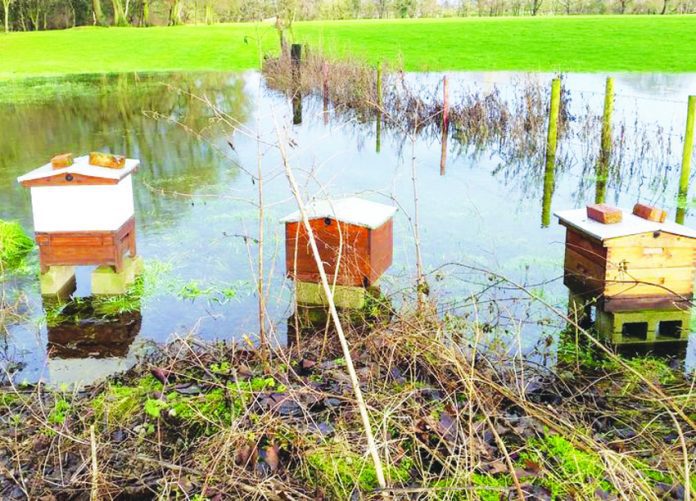A beekeeper believes thieves who stole three hives “bit off more than they can chew” because of their design.
The hives were stolen from within the grounds of Clonter Opera Theatre at Swettenham Heath.
Beekeeper Pete Sutcliffe had hoped to build a colony with the bees in one of the hives before they were pinched.
The theft is believed to have taken place sometime between Sunday, 7th and Sunday, 14th February.
The parts that made up the hives were homemade, and Mr Sutcliffe said he could prove immediately that they belonged to his hives.
He said: “The hives were stolen when no-one was working. We’ve got no leads at all.
“They just happen to be unique hives so if I saw any of the pieces that had been stolen, I could prove they were mine.”
Mr Sutcliffe said the hives could be dismantled quickly, explaining that the honeycomb was in frames within the hives and could be lifted out quite easily.
Three hives out of four were stolen.
“It does hit you more than you might think. One of the hives contained a colony of bees I had earmarked for breeding and I regret losing those,” he said.
The 68-year-old described what happened as an “awful confluence of circumstances”.
“The site was flooded in January after a field drain became blocked. We decided we had to lift the hives as their stands were in the water so they were lifted to higher ground, which made them visible from the road, otherwise they may not have been seen.”
Mr Sutcliffe added: “They are worth a lot more to me than anyone else and it’s particularly upsetting when I’ve worked with these bees and nurtured them through the winter, lifted them out of a flood then they disappear – someone comes and takes them.”
He said the hives, containing 10-15,000 bees between them, were worth up to £1,500.
Mr Sutcliffe explained: “Being a unique type of hive they are not really saleable and I’m rather hoping that whoever has taken them has bitten off more than they can chew. I doubt there are spare parts in this country that would fit the hives. It’s not impossible but it would be very difficult.
“Any beekeeper would have noticed that they are quite different, they would also have to know how to move a hive. However, it might have been an opportunist theft.”
Mr Sutcliffe said he kept hives elsewhere from which he hoped to build a bee colony.
The honey his bees produce is sold in local shops as Clonter Honey, which was also sold during Clonter Opera Theatre’s fairs.
Mr Sutcliffe has kept bees for almost 40 years, his father being a beekeeper before him. He edited the Cheshire Beekeeper magazine for several years and was chair of his local branch and county archivist. He led a county-wide working group on selective queen-rearing. Following his retirement, he put himself through various examinations and eventually achieved the accolade of master beekeeper.
Isabella Lockett, joint chief executive of Clonter Opera Theatre, described her shock at the theft.
“When we saw the hives were not there, we thought they had been relocated or that the bees had died. It never crossed our minds that someone had stolen them. It was only on Sunday when the beekeeper came out to see them and asked if I knew anything did I realise they had actually been stolen.
“Is it a consequence of covid that people are that desperate? I wouldn’t think you would take them unless you are in the beekeeping community.”
Cheshire Police Rural Crime Team posted on its social media page: “As you are probably aware, beekeeping is a skilled pastime/profession and colonies are not only important to the environment but are cared for intensely so will now not only be a financial loss but also time consuming as the beekeeper now needs to rebuild these colonies.
“Please be vigilant and let us know if you see any suspicious activity via 101 or 999 if a crime is in progress.”





